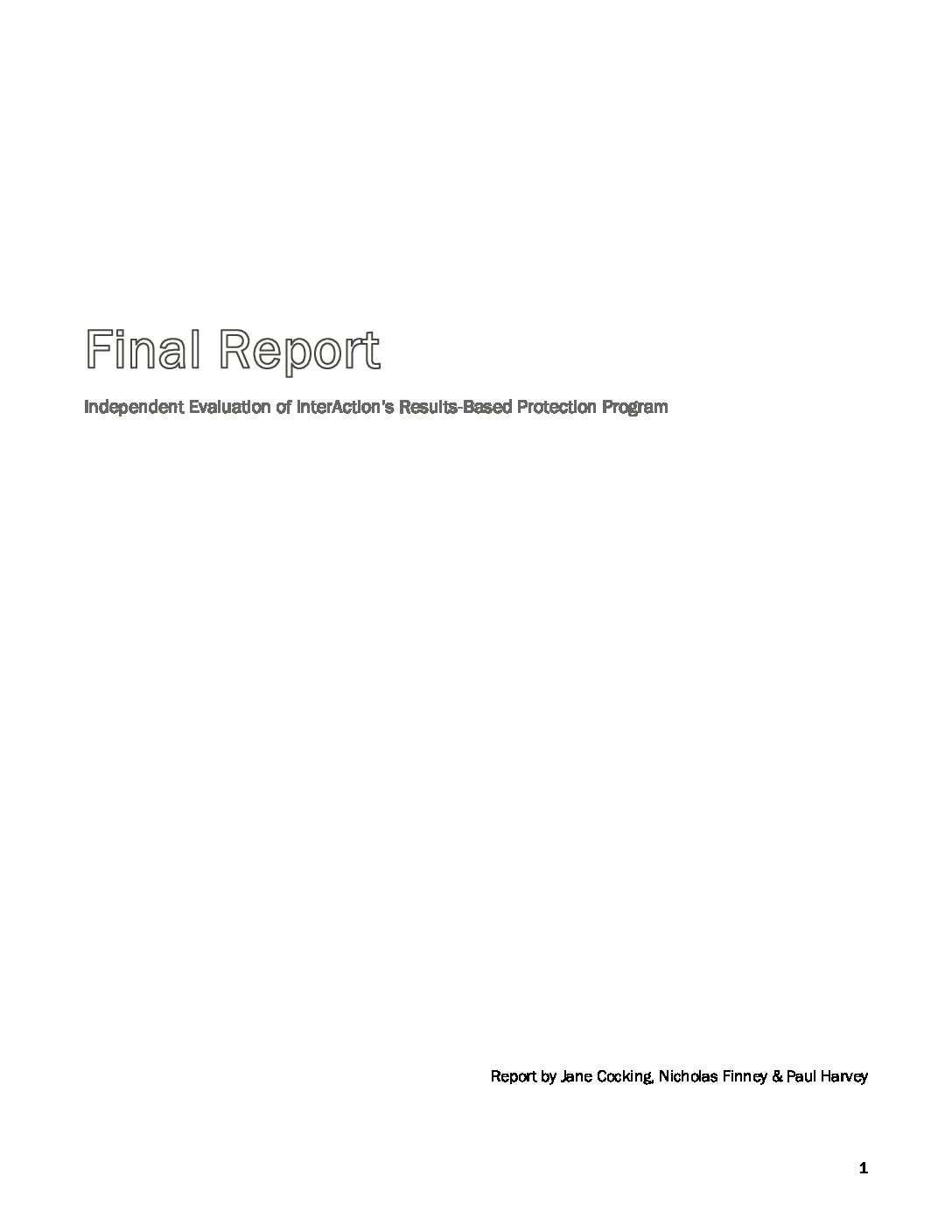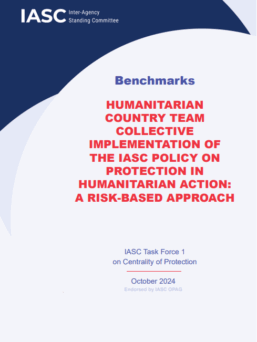InterAction developed its Results-Based Protection (RBP) initiative as a response to questions about whether protection could be measured and, if so, how? Extensive consultations with practitioners and protection specialists led to the distillation of good practice in the form of three Key Elements of Results-Based Protection. InterAction subsequently turned its attention to working with NGOs to apply results-based approaches in practice with the strategic objective of contributing to a cultural and strategic shift within the humanitarian community to achieve protection outcomes.
With the financial support of the Swedish International Development Agency (SIDA), InterAction commissioned an independent evaluation of its RBP program. The evaluation reviews the RBP program against its strategic objective to determine the relevance and effectiveness of InterAction’s varying RBP activities and efforts. This evaluation will help InterAction adjust its RBP activities and objectives to better achieve its strategic objective. The evaluation adopted a mixed methods approach, using document reviews as well as focus group discussions and key informant interviews.
The evaluation found that InterAction and its RBP initiative are respected within the humanitarian protection community, particularly for its influence in global thinking and language on protection and its ability to bring together different actors for discussion. InterAction has had measurable impacts in this aspect; it has been instrumental in an increasing focus on protection outcomes in the community, and it directly contributed specific language in the Inter-Agency Standing Committee’s (IASC) Principals Statement on the Centrality of Protection and the IASC Policy on Protection in Humanitarian Action.
InterAction have built a really close community of protection specialists in the Hub – we gain a lot from the discussion there.
An Interviewee
In addition, InterAction’s activities in the Gender-Based Violence (GBV) community and in field countries were well-received. InterAction’s engagements with GBV actors, such as its work on the GBV Prevention Evaluation Framework (PEF), have made inroads deepening understanding about how the growing attention to GBV prevention can be accompanied to measure GBV prevention outcomes. InterAction’s field support to Honduras, Nigeria, and Libya was also valued by teams in-country.
The first time I got to learn about InterAction and the RBP work was when I applied for a position in Nigeria – I found their analysis of the situation in NE Nigeria. It was the best piece of work that I found that explained the situation. One of the things that also struck me was that the RBP framework gave me a tool to reflect on my work in previous humanitarian crises and the analytical process of considering risks, threats and emerging response.
A key informant from the field
The evaluation also identified areas of improvement. Many participants expressed a desire for clear evidence demonstrating the practical impact that adopting RBP has on affected populations as well as simpler language when it came to the RBP framework and tools. Moreover, though InterAction’s work is influential among protection actors, it is less known among humanitarians not specialized in protection.
In light of these findings, the evaluation recommended that InterAction continue its activities, such as the GBV PEF and field support, while exploring how to sustain these activities and explicitly document lessons learned. Other recommendations included creating a clear theory of change for how the RBP initiative can create change in the humanitarian community, and engaging with a broader variety of humanitarians, including non-protection actors. One potential avenue could be a greater engagement with the Global Protection Cluster (GPC), which many informants believe would be highly beneficial.
The next steps for InterAction will be to use these findings to inform future activities and ongoing projects. For example, in order to improve outreach on RBP, InterAction is redesigning its RBP website. InterAction has also begun working with consultants on a project to develop RBP materials for senior managers and organizational leadership, beginning with in-depth interviews with a diverse array of humanitarian leaders. InterAction will continue to apply the findings of this evaluation towards better achieving its strategic objective.



